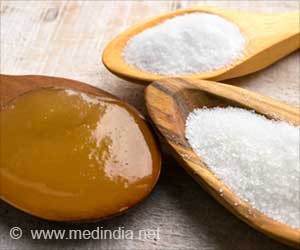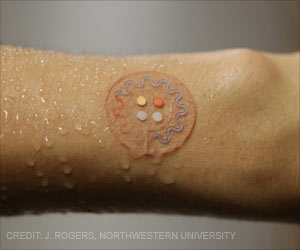Why is women's heart health important? Learn about the silent crisis and empower yourself to combat cardiovascular diseases with knowledge.
- Women face unique cardiovascular risk factors often overlooked
- Poor awareness and preventive measures contribute to adverse outcomes
- Urgent need for awareness campaigns and preventive interventions
Prevalence and predictors of risk factors for cardiovascular diseases among women aged 15-49 years across urban and rural India: findings from a nationwide survey
Go to source).
Women's heart health is often overlooked, yet they face unique risks. It's time to raise awareness and take preventive action! #womenshealth #hearthealth #medindia’
Obesity Linked with Heart Disease
According to Dr. Neelam Dahiya, Assistant Professor, Department of Cardiology, PGI, Chandigarh, a recent study found that 44% of women who suffered from cardiovascular disease were obese, and only 1% had an acceptable consumption of fruits and vegetables (at least two fruits and three vegetables per day)."Women also have low awareness of heart disease and its risk factors. Despite these well-known facts, healthcare workers share little information concerning risk factors. Dr. Dahiya stated that just 47% of the women were recommended to limit their salt intake, and less than 30% were urged to quit smoking and eat a balanced diet. "These statistics highlight the urgent need to create awareness about CVD risks among women and take preventive measures to combat this growing concern," stated Dr. Dahiya during a CME on women’s health and cardiovascular awareness.
Leading Causes of Heart Disease
Obesity, sedentary lifestyle, stress, hypertension, and diabetes all increase the risk of developing cardiovascular illnesses in India. Women with heart disease have a 50% higher risk of death in the long run, and 40% of women in the country die as a result of it. "Our study of Chandigarh women found that up to 10% of women with CVD were under the age of 40. "This is an alarming situation," said Dr. Dahiya, who added that high salt intake, smoking, a poor diet, and a lack of exercise are among the primary causes of CVD.Considering these worrying figures, Dr. Dahiya stated that the faculty realized that already overburdened healthcare staff require assistance in preventing heart disease, hence it is critical to update current knowledge among non-medical skilled people so that they may function as health advocates. "At PGI, we are preparing to launch a preventive clinic for risk assessment, in which we will employ available risk estimating techniques based on age, obesity, hypertension, activity level, family history, diabetes, and other factors, and offer therapies to avoid CVD. South Asians are more likely to develop heart disease, while other risk factors for women include pregnancy and stress. 80% of noncommunicable diseases can be avoided by leading a healthier lifestyle. Also, in comparison to the Western population, we have less physical activity and a poorer diet, and body fat in Indians is higher than in Westerners while having the same BMI," the doctor stated.
Stress, Obesity and Unhealthy Diet Increase Risk of Heart Disease
Stress is one of the leading causes of heart disease in India. In a fast-paced and competitive workplace, realistic stress-reduction strategies include proper time management, yoga, and a positive perspective. "Obesity is nearly a pandemic, and it is increasing in women more than males. Obesity causes a variety of problems, including heart failure, blood clotting, and diabetes," explained Dr. Rama Walia of PGI’s Department of Endocrinology, who emphasized the negative consequences as well as obesity management. "Various studies have indicated that Indians consume more salt and sugar than vegetables and fruits. Some of the crucial strategies include drinking more water, eating a full plate of salad before a meal, and consuming extra protein at each meal. A glass of water helps alleviate false hunger, so aim for three servings of fruits and vegetables each day, and drink diluted lassi, which is beneficial to gut flora and contains antioxidants. Carbohydrates, calories, sugar, and trans fats are key contributors to obesity. Dr. Walia stated that long hours of sitting and little movement contribute to excess weight and, as a result, CVD.According to specialists, a sedentary lifestyle is the root cause of all cardiovascular disease risk factors such as hypertension and obesity, and today’s tight work schedule causes unavoidable stress, resulting in bad sleep habits in people. "We need several measures to combat this rising rate of heart disease and it needs collective effort," said Dr. Dahiya.
Reference:
- Prevalence and predictors of risk factors for cardiovascular diseases among women aged 15–49 years across urban and rural India: findings from a nationwide survey - (https://bmcwomenshealth.biomedcentral.com/articles/10.1186/s12905-023-02869-0)
Source-Medindia
















